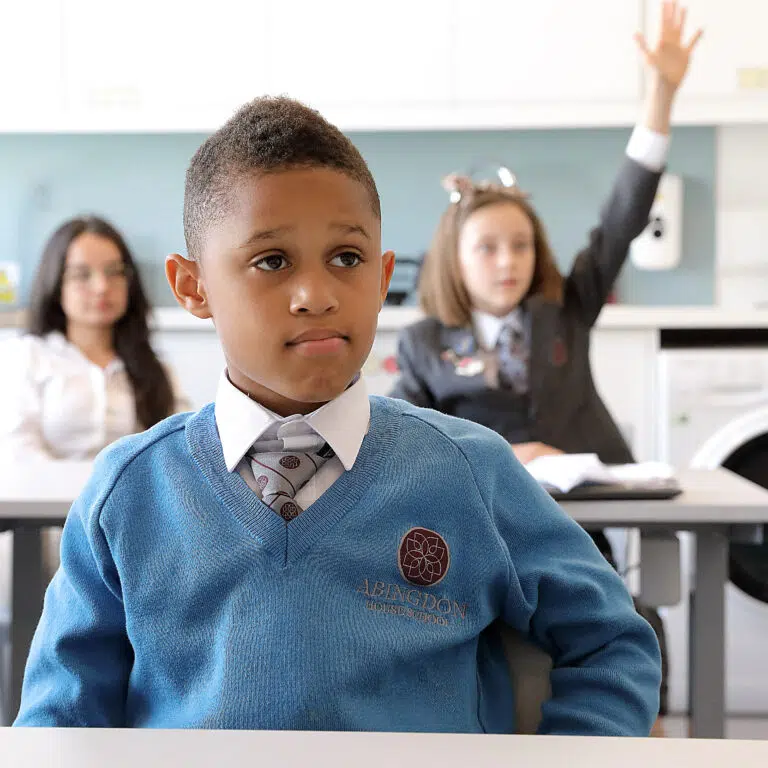by Rachel Cullen, Assistant Head & Head of Mental Health and Wellbeing at AHS Prep
‘Trauma informed practice’ has become a common phrase in education. It is frequently promoted as a means for mitigating the negative impact of trauma and supporting positive outcomes for children. While the approach is research-backed, a lack of consensus around its definition and application means it runs the risk of becoming a mere buzzword, rather than a lived reality. For schools to be truly trauma informed we must do more than acknowledge that our students have experienced adversity; we must build systems, relationships and mindsets that actively respond to this adversity.
At its core, a trauma-informed approach is structured around six key principles: safety, trust, choice, collaboration, empowerment and cultural consideration. It requires all adults in the environment to understand behaviour as communication, and to acknowledge the invisible adversity many students carry – family difficulties, instability, loss or experiences that have made them question their sense of safety and shape how they think, feel and respond to the world around them. Our role as important adults in their lives is to accept these responses without judgement while holding compassionate boundaries, supporting each child to feel safe until they are ready to learn. This is not about lowering expectations, rather, it is supporting students to achieve what they are capable of.
As a trauma-informed school, we place relationships at the centre of everything we do. This is the starting point for any support that we provide, whether in the classroom or in a therapy session. Positive relationships are not an added bonus, they are the foundation on which we can build a child’s emotional regulation, resilience and academic learning.
At AHS this involves taking the time to truly get to know our students. From greeting pupils at the door and daily form time with class teachers to sitting with students at lunch time, talking on the way to the park, and checking in with students at the end of the day – all staff from the office to the senior leadership team are constantly developing these connections.
Restorative conversations are an integral part of our practice, supporting students to reflect, repair and rebuild trust with both adults and peers in the school setting. These conversations allow us to model and develop emotional regulation, problem-solving and empathy in the real world situations our students have experienced. We hold our students to the highest expectations whilst focusing on teaching self-regulation rather than punishing dysregulation.
In addition to this focus on relationships, collaboration with families is given equal importance in our trauma-informed approach. We recognise that minimising the impact of trauma requires the whole system around a child to work together. Families are involved in the conversation at every step and are considered partners in their child’s school journey. Weekly family group sessions are an opportunity for families to meet together, collaborate and share their goals for their children. Connection is made through formal and informal measures including daily feedback, regular emails and meetings, and catch-ups between form tutors and parents at pick-up.
As a trauma-informed school, we actively work to normalise the experience of making mistakes. Many of our students have come from school backgrounds where they were penalised for mistakes linked to their neurodiversity and as such, can have very negative perceptions of getting things ‘wrong’. We teach our students that mistakes are opportunities for learning or as one student puts it, “practice makes progress”. Through restorative conversations we explicitly teach our students how to apologise, repair relationships and move forward. These are crucial skills that give students the confidence that they can cope with setbacks when they arise.
At the heart of everything we do is the feeling of belonging that we strive to provide for our students. As a SEN school, recognition of difference is integrated and embedded throughout. The cultural and social diversity of our school community, and the range of unique learning profiles our students possess, are a point of celebration and pride. Noticing and valuing every student for who they are ensures that they feel emotional, relational and psychological safety in and outside the classroom.
What have we noticed?
The benefits of using a trauma informed approach are apparent at staff, student and family levels.
Staff report reduced feelings of work-related stress, as they are able to empathise with and understand where a student’s behaviour is coming from. This supports a proactive, supportive approach to challenges, led by the mindset of ‘what can I do to help?’.
In students, we see increased engagement in lessons, improved resilience in navigating peer conflicts, and a willingness – often proactive desire – to engage in restorative conversations with their peers. The number of students putting themselves forward to participate in our peer mentoring programme is testament to the safety that they feel at school.
Families communicate a strong sense of partnership and collaboration with the school, which enables a high level of home-school integration when it comes to strategies and therapeutic interventions.
For AHS, being trauma informed is so much more than a checklist to be completed. It is our whole school approach to everything that we do. With priority given to relationships, empathy and understanding we are able to create a school environment where every student feels safe, valued and capable of success. It is not just what we say we do, it is what we live every day.


